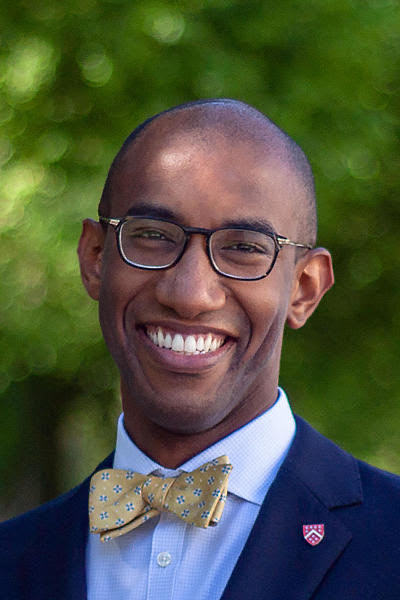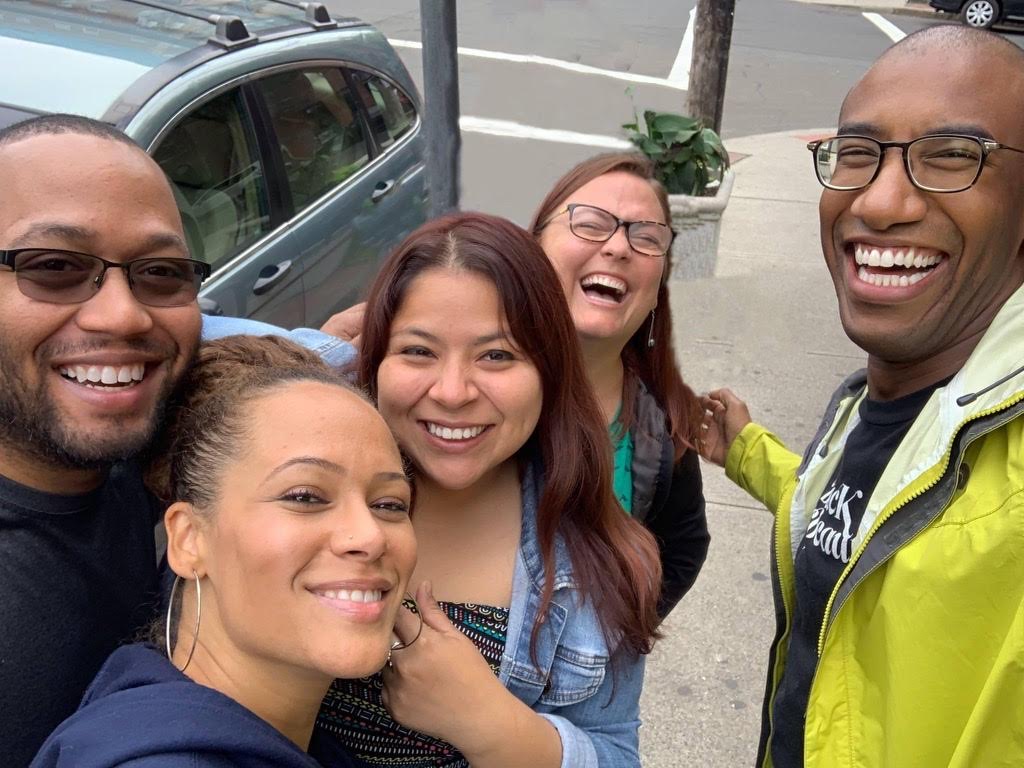
Photo courtesy of the Office of LGBTQ resources. Home page photo courtesy of AfAm House members and affiliates
Andrew Dowe, lecturer and director of undergraduate studies of Women’s, Gender and Sexuality Studies and associate director of the Office of LGBTQ Resources, died unexpectedly this weekend in his home. He was 34 years old.
Dowe initially attended Yale College, earning his bachelor’s degree in African American Studies and WGSS in 2008. After attending the City University of New York for a master’s degree in education, he returned to Yale as a graduate student, jointly studying African American Studies and American Studies. In July 2020, he successfully completed his dissertation on “how discourses of race, gender and sexuality have shaped queer tourism and representations of the Caribbean,” according to Roderick Ferguson, department chair of WGSS and a member of Dowe’s dissertation committee.
“He has touched countless lives through his presence at Yale, as an undergraduate, graduate student, staff member, and lecturer,” wrote Tamar Gendler, dean of the Faculty of Arts and Sciences. “Yale is immeasurably better from having had his presence on our campus, and immeasurably diminished by his untimely loss.”
Because Dowe attended Yale in different roles, many of Dowe’s Yale colleagues knew him in multiple ways: first as his head of college, then as his colleague. As his professor, then as his creative partner. As his friend, then his co-teacher.
Maria Trumpler, director of the Office of LGBTQ Resources and a senior lecturer of WGSS, initially taught Dowe in a 2007 junior seminar.
“Already impressed by his curiosity, willingness to question accepted practices, and his joy in living, I then had the pleasure of creating the Office of LGBTQ Resources with him over the next decade,” she wrote to the News in an email. “I and many others treasure both the care and simple beauty of the interior design and the care and simple beauty of the community he nurtured.”
When Dowe attended Yale as an undergraduate, he was a member of Berkeley College and, upon returning, he managed Berkeley’s Senior Mellon Forum — also known as the Berkeley Commonplace Society — where seniors discuss their senior projects.
“Andrew directed Commonplace with a passion and generosity that instilled an endearing kinship among each of our last dozen classes of seniors, as they presented their senior research to each other over catered dinners within the college,” David Evans, head of Berkeley College, wrote in a college-wide email. “Andrew’s personally crafted vision of Commonplace Society focused on positivity and encouragement, laughter and joy.”
In a separate email to the News, Evans added that “Andrew was, and is, so incredibly beloved by all.”

Craig Canfield, who co-taught “Identity, Diversity, and Policy in U.S. Education” with Dowe this past semester, first met him when Dowe returned to Yale as a graduate student, where both became very involved in LGBTQ activities on campus.
While Canfield “never” felt like he enjoyed previous classes he took that were co-taught, teaching the class with Dowe was a completely different experience. He credits this to who Dowe was as a person: someone genuinely supportive of Canfield and their students, always with a “big, bright smile.”
This smile was continuously mentioned amongst the waterfall of tributes dedicated to Dowe.
Ferguson wrote to the News in an email that his smile “bestowed light on everybody around him” and Evans called it “beautiful and infectious” in the college-wide email.
In almost every single photo of Dowe, that smile — so wide that almost all of his teeth are showing — is a constant.
Hector Peralta, a doctoral candidate in American Studies, first met Dowe during a social event for newly admitted doctoral students.
“[His] energy and joy as a queer Black man made me feel welcomed at Yale and New Haven,” Peralta wrote in an email to the News.
Students specifically remembered Dowe for his efforts toward a more inclusive campus — bettering Yale, as Peralta noted, for “Black Queer students and other queer students of color.”
In statements sent out by Dean Eileen Galvez, director of Yale’s La Casa Cultural and Dean Joliana Yee, director of the Asian American Cultural Center, both noted that the impact of Dowe’s death will be especially felt by Black students, Black queer students and other queer students of color.
Ferguson, who only recently joined Yale’s faculty, remembers first realizing how “special” Yale’s WGSS program is, a revelation he credits to how much Dowe loved and cared for the WGSS students, attending their extracurricular events and organizing senior celebrations.
Dowe was both a mentor and a friend — someone who shared advice, brought joy to every conversation, gossiped about Rihanna’s nonexistent next album, had an “impeccable sense of fashion” and shared Canfield’s childhood habit of collecting clown figurines.
There was a university-wide vigil held over Zoom on Monday night for faculty, students and staff to share memories of Dowe and be in community with one another. Over 250 people attended.
Dean Risë Nelson, director of the Afro-American Cultural Center and assistant dean of Yale College, wrote to the News that “Prof. Dowe had such a deep connection and respect for [the] Black LGBTQIA+ community. The students were so inspired by him, his welcoming and nurturing spirit.” Nelson added the vigil was a space where “nearly a hundred queer and trans Black students and alumni could come together to honor Prof. Dowe’s life and be in community with one another before attending the university-wide vigil.”
At that vigil, Nelson called Dowe a “light” and added that time spent with him always “felt like a family reunion.”
“It seemed to be his calling to remind people of how special they are, of the potential they have,” Nelson wrote, “to empower people to live with authenticity and pride in their fullness, in their wholeness; and to remind them they must create their joy and hold onto it in spite of what life may throw at us.”
At the vigil, Nelson ended her remarks by urging the hundreds who attended to keep “passing his light on.”
“He made Yale human,” Ferguson said.
Madison Hahamy | madison.hahamy@yale.edu
Update, Feb. 3: The story has been updated to include a comment from Nelson, director of the Afro-American Cultural Center and assistant dean of Yale College, who spoke at the vigil.







